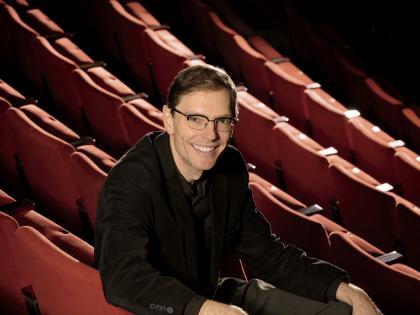Harvard Business School dean Nitin Nohria and senior associate dean and chair of the M.B.A. program Youngme E. Moon have signaled two changes in the two-year M.B.A. curriculum, both effective this coming fall. The changes, voted upon by the faculty on January 19, were announced over the weekend both to students now enrolled and to applicants accepted for admission in the 2011-2012 academic year, who may be choosing among business programs in which to enroll.
The first-year “required curriculum”—a sequence of common foundational courses in management, taken by all students (covering finance, financial reporting and control, marketing, technology and operations, business and government, strategy, ethics, etc.)—will be supplemented with an additional offering, the Field Immersion Experiences for Leadership Development (FIELD). It is likely to be organized as three small-group modules, one each at the beginning of each semester and a required unit during the January term. As now conceived, the modules will cover leadership, globalization, and integrating students’ first-year learning. The middle unit is to be a global immersion experience, at a company outside the United States, to which the group would travel together, there to work on a common assignment. Overall, the FIELD course aims at a hands-on “doing” approach to learning, rather than classroom-based “knowing” management material and skills. The course is being described as “experiential, immersive, and field-based.”
In addition, the second-year "elective curriculum" will be altered by “modularizing” the calendar: breaking each semester into two quarters, and introducing longer scheduled learning times every other week, so the regular diet of case-based classes can be supplemented by longer exercises, simulations, or other approaches to the course material. At present, a course consists of 20 to 30 class sessions, each of 80 minutes. The new schedule will consist of four half-terms, each with 14 sessions, some extending to 120 minutes; and it will accommodate class-based learning followed by field-based courses, among other options.
As such, both changes represent at least initial evolution beyond the school’s famous case-method class format.
Some of the background work for these changes began during HBS’s centennial year, in 2008, when then-dean Jay Light asked Dickinson professor of accounting Srikant M. Datar and Christensen professor of business administration David A. Garvin to examine business education. Their book, Rethinking the MBA, published last year, cites a concern that some of HBS’s cases have devolved into “problem sets, narrowly designed to teach technical skills” rather than place those skills in a “broader company and industry context,” and recommends changes like those being introduced into the curriculum now. (For Garvin’s analysis of case-method education, see his 2003 Harvard Magazine feature.) Dean Nohria, who took office last July 1, apparently accelerated development of the new course and restructuring of the elective program. (Read more on Nohria’s views of management education here.)
Although many details about how both changes will be implemented have yet to be worked out, the school felt it was imperative to communicate them now so that prospective matriculants could choose appropriately among programs they are considering. HBS’s changes, which may be only the first indication of more sweeping curricular and teaching revisions, come in a context of much rethinking of business education, with significant changes in the course offerings of Penn’s Wharton School and business schools at Stanford and Yale, among others.
The changes have elicited interest in the business press, as reflected in online reports by Bloomberg Businessweek’s Louis Lavelle and Fortune’s John A. Byrne.








